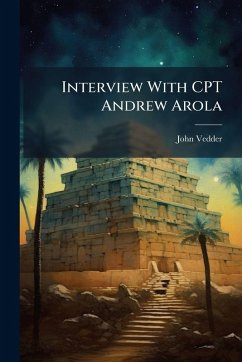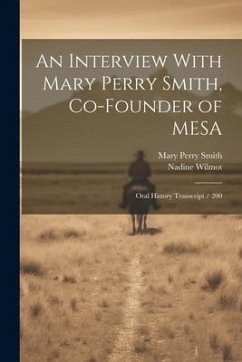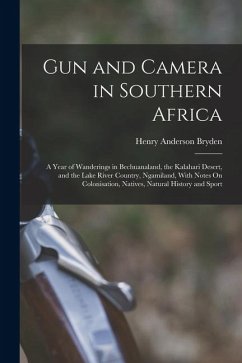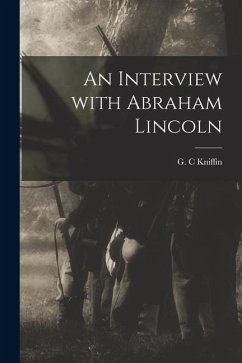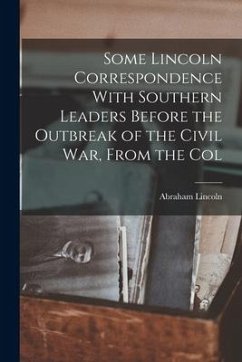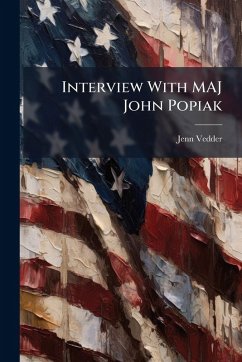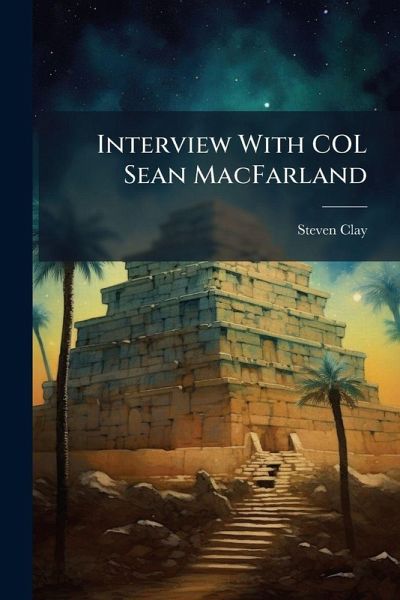
Interview With COL Sean MacFarland

PAYBACK Punkte
7 °P sammeln!
In command of the 1st Brigade, 1st Armored Division, also known as the "Ready First" Brigade, COL Sean MacFarland, deployed his command from Central Germany to Iraq in March 2006. The Ready First Brigade assumed control of western Ninewah Province from the 3d Armored Cavalry Regiment. There MacFarland's troops, along with their counterpart Iraqi Security Force units, maintained security for Tall Afar, Sinjar, Rabiyah, and other areas of western Ninewah. When the brigade took over, Tall Afar was largely tamed, but there were still Anti-Iraqi Forces operating in the area. MacFarland used Informa...
In command of the 1st Brigade, 1st Armored Division, also known as the "Ready First" Brigade, COL Sean MacFarland, deployed his command from Central Germany to Iraq in March 2006. The Ready First Brigade assumed control of western Ninewah Province from the 3d Armored Cavalry Regiment. There MacFarland's troops, along with their counterpart Iraqi Security Force units, maintained security for Tall Afar, Sinjar, Rabiyah, and other areas of western Ninewah. When the brigade took over, Tall Afar was largely tamed, but there were still Anti-Iraqi Forces operating in the area. MacFarland used Information Operations extensively against the remaining enemy. One operation, called Bridge Builder, was a unique approach. MacFarland recalled, "These were really AQ guys and we had reports from various interrogations that some of these guys were drug addicts, alcoholics, homosexuals, pedophiles, and all this kind of stuff. So, we put posters up for these guys with their pictures and we said, 'Hey. These guys are homosexuals, pedophiles, drug addicts, and alcoholics, ' and figured if they wanted to sue me for slander, then, come on in and we'll talk. That would be great because then they could just sue me from Abu Ghraib." In June 2006, MacFarland's brigade was sent south to Ramadi in Anbar Province. There his command took over that area of operation from the Pennsylvania National Guard's 2nd Brigade, 28th Infantry Division. In Ramadi MacFarland found the situation far different than in Tall Afar. The city was under al Qaeda in Iraq (AQI) domination and the new mission was to clear them out. After about three months of Ready First Brigade's efforts working with local leaders, and due to AQI's own missteps with the local population, a key sheik in the city "flipped" and brought a number of other sheiks with him to start working with the coalition forces. This event has since become known as the "Anbar Awakening" was the beginning of the great success by MacFarland's troops to bring Ramadi under control in 2006 and 2007. In summing up his view of his key lesson learned in Iraq, MacFarland explained, "... indigenous forces are the key to winning a counterinsurgency fight and you have to accept them for what they are and not be put off by the fact that they are not like us and don't operate just like us... You know, we always ask ourselves, 'Well, are they worthy allies?' Well, you know, we need to ask ourselves that same question and I would argue that we had not been worthy allies up until that point and, certainly, our history requires a bit of a leap of faith for anybody who wants to align with the United States. Anybody who watched our experience in Vietnam kind of has to really swallow hard when we say, 'Dont worry. We are not going to leave you behind.'" This work has been selected by scholars as being culturally important, and is part of the knowledge base of civilization as we know it. This work was reproduced from the original artifact, and remains as true to the original work as possible. Therefore, you will see the original copyright references, library stamps (as most of these works have been housed in our most important libraries around the world), and other notations in the work. This work is in the public domain in the United States of America, and possibly other nations. Within the United States, you may freely copy and distribute this work, as no entity (individual or corporate) has a copyright on the body of the work. As a reproduction of a historical artifact, this work may contain missing or blurred pages, poor pictures, errant marks, etc. Scholars believe, and we concur, that this work is important enough to be preserved, reproduced, and made generally available to the public. We appreciate your support of the preservation process, and thank you for being an important part of keeping this knowledge alive and relevant.



